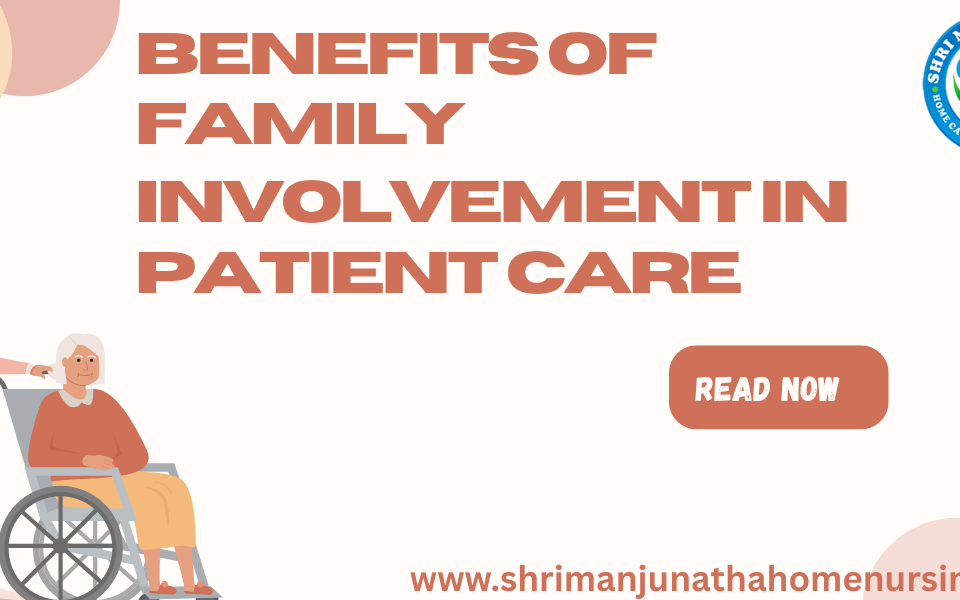How Bedridden Care at Home Enhances Comfort and Quality of Life

Choosing the Right Home Nursing Service in Mysore
November 16, 2024
The Role of Patient Caretakers in Hospitals
November 23, 2024How Bedridden Care at Home Enhances Comfort and Quality of Life
One of the most heartfelt responsibilities is caring for a bedridden loved one. While they are challenges, the decision to provide care at home rather than caring in a facility can have a great impact on the patient’s comfort and ease of pain. A setting done at home doesn’t just cater to physical needs but also supports emotional well-being of the patient, making it an invaluable option for many families.
Why Choose Bedridden Care at Home?
When our loved ones become bedridden, their world often feels smaller, but being at home can make a big difference. Also, it creates a comforting environment when the familiar surroundings of their own space, coupled with the presence of family. To reduce the stress and promoting mental health, it is necessary from them to stay connected with their routine, memories, and personal belongings.
More personalized attention can be given with homo care when compared to hospitals or nursing homes. Every little detail can be tailored to their likings, whether it’s lighting of the room, cooking their favourite meals, or simply ensuring the presence of their family nearby.
Emotional and Physical Benefits of Home Care
The emotional advantages of home care are significant. Most of the times, the bedridden patients feel more isolated or anxious in institutional settings, but when surrounded by their loved ones or family members at home they feel a sense of belonging and safety. This emotional stability often translates into better mental health, which can positively influence greater physical recovery or well-being of these patients.
When viewed from a physical standpoint, home care offers a controlled environment where hygiene and care standards can be closely monitored. Caregivers work to prevent complications such as bedsores or infections while helping with mobility and physical therapy. Patients can also maintain a better daily routine, including proper sleep, meals, and medication schedules, without the disruptions often found in a hospital setting.
Personalized Care Plans: A Game-Changer
Every patient has unique needs. The biggest advantages of home care is that we can specifically design the plan for the individual, namely:
- Providing stability by structuring their day with routines.
- Aligning personal tastes and health requirements with their meals.
- For improving the mobility physical therapy exercises can be implemented.
- Ensuring they always receive the support they need, by adjusting care as their condition betters.
In large institutions many a times, it can be a say that one-size-fits-all with their given treatments or plans, but it is opposite to the personalized plans given to the home care bedridden patients.
Real-Life Stories of Care at Home
For an example, let’s say about Mrs. Meenakshi, a 74-year-old who recovered from a major surgery from personalized home care. It was intimidating to be bedridden for months, but the difference was made when their family decided to care for her at home. Meera regained her confidence and started her long-dwelled knitting, which missed doing for years. This happened all with the help of a professional and trained caregivers.
Another story is that of Mr. Arjun, a retired teacher diagnosed with a terminal illness. His children opted for home-based palliative care so he could spend his final months surrounded by family. They worked with caregivers to ensure he was comfortable, and he cherished every moment spent telling stories to his grandchildren.
These stories highlight how compassionate home care goes beyond physical assistance to nurture emotional well-being.
Why Home Care is Worth Considering
At its core, home care is about treating patients with dignity and ensuring they feel valued. It’s about recognizing that healing isn’t just about medications and treatments but also about love, comfort, and emotional security.
If you’re considering bedridden care at home for someone you love, take the time to explore how personalized care can make all the difference. With the right support, your loved one can experience a better quality of life in a place where they feel most at peace.
By shifting the focus to their comfort and happiness, we can transform the way we care for bedridden individuals. If you’re ready to start this journey or want guidance on how to set up care at home, reach out today. Let’s create a plan that ensures the best for your loved one.




